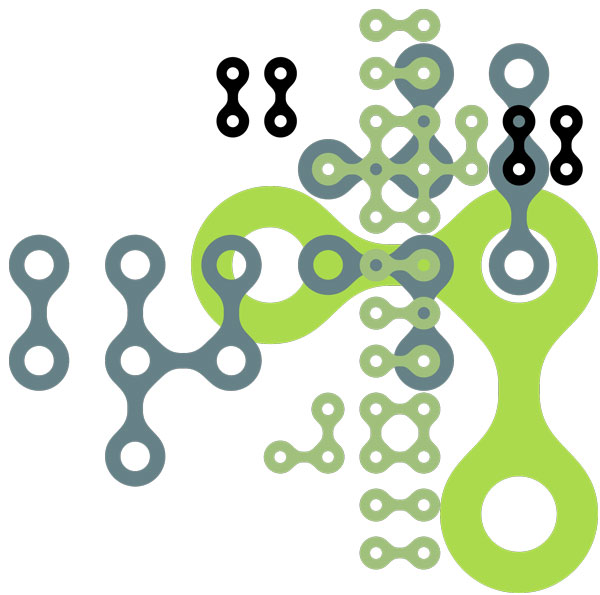Claire Arnold is a founding partner of Maxxim Consulting. In this interview, she told us about her management philosophy, visions as well as her views on the future for Maxxim and other consultancy firms.
1. Maxxim was a start-up. How did it come about?
I am a great believer in knowing what’s at the heart of the matter and in my world that’s first-rate people and good intellectual property. When I left AT Kearney in 2000, I was determined to focus on client work and not quite so many air-miles and conference calls! I was doing some really interesting work with DWP and EDS on their Public Private Sector Partnership. I found myself having more to do than I could manage and was introduced to Sozen Leimon, who had just left Accenture, where she had been a leader in their human performance practice. The first time we met we started scoping the next stage of the project in a coffee shop; We found we were a natural match in terms of both skills and values and so the Maxxim business plan and proposition developed on numerous long train journeys to the North West where our work with DWP took us.
2. How did Maxxim grow from a start up to working with clients that include Oxford University and the Royal Mail?
We firmly believe that the best way to grow a business is to do great work for your clients. In this respect Maxxim’s history divides into three stages. In the first stage Sozen and I pitched our credentials to people we knew. We were lucky enough that many of them gave us work and almost all of them asked us to work for them again in year two. From years three to five we worked hard to develop our credentials and relied on part time expert Business Development support to contact prospective clients and try to broaden our network of contacts. This is a fairly soul destroying experience, especially if you are typically English and understated about what you’ve achieved, but it’s mitigated by the excitement of success. For example, we won the work at Oxford off the back of our successful integration and reform project at Kings College London, simply by ringing up and suggesting we might be useful.
Nowadays we have a broader range of effort and skill going into growing our business. In particular our work on the role and purpose of the Corporate Centre has been developed through our benchmarking work and our work with clients.
[ms-protect-content id=”9932″]It’s great to be at the forefront of innovation and developing new thinking and it’s even better that it works. In addition, we’ve developed a small library of white papers and opinion pieces, we run debates with clients and even write articles; but in the end the best way to grow the business remains having a good team and doing a good job.
3. What makes Maxxim different from other consultancy firms?
I think Maxxim is different by virtue in the energy and honesty that we bring to our work. There is a real buzz about the Maxxim office and clients tell us that we are quite opinionated in a way that they appreciate. It’s our view that knowing what the key choices are is critical to managing change in organisations because clutter is what allows drift and indecision. In other respects we are very similar to the larger consultancies: we are highly organised, well trained and enjoy making organisations work better.
4. What is your favourite part of being your own boss?
My favourite part of being my own boss is the creativity that it allows me. I can think about what the next step for Maxxim might be and new ways of working with clients – the next steps for the Corporate Centre work for example.
5. What is the biggest challenge that Maxxim has had to date? How did you overcome this?
The biggest challenge is always making sure that we are doing a good job for clients right now and making sure that we get the time to do what we need to ensure Maxxim becomes stronger as a business. At the heart of this is making Maxxim a great place to work for our team. So, it’s not so much “did” as “do” overcome this. We firmly believe that one of the reasons we have been successful so far is that we’ve been quite good at knowing when to change gear: whether it’s been moving office, bringing in new talent or bringing our own business processes and policies up to date. Involving the broader team and hearing what they think and feel is really important. When new hires are made, it’s extremely important to bring in the right people with a shared vision. This is a key area of investment for us as a business and should be for any company that wants to remain dynamic and innovative.
At the moment I am also leading a review of our core processes with our Engagement Managers. The energy and vitality that comes from this seemingly dull work has been really brilliant, especially as we tend to tackle this on Monday evenings.
6. And the biggest success?
We had our first £1m sale from a standing start last year. Also one of our first and most loyal clients Meggitt hit the FTSE 100 earlier this year, which made us very proud (although it was their hard work). At the other end of the spectrum last night I promoted our first ever intern to be our first ever trainee consultant.
7. If you could start all over again is there anything you would have done differently?
I’m not one for regrets really and we’ve learned from everything we’ve done. We could probably have had a chairman a bit earlier. You can learn a lot from the time you spend with your non-execs.
8. What challenges do you think the future holds for Maxxim, and other consultancies?
As we grow the challenge we face is making sure we stay true to our values, keep delivering great client work and sustain the business’s entrepreneurial and commercial edge. In common with other consultancies, I think that it’s very important that we keep a check on our self-importance. It seems to me that a fatal flaw of the life we lead is to become proselytes for change when just getting on with doing the business of business would be best. Not only does it make consultants boring people to be with, it’s also bad for the industry.
As far as Maxxim and the rest of the consulting industry is concerned I think that this means there is a real value to timely and expert advice and support, and a grave danger in too much scale, as it leads to the need to manage utilisation at the expense of impact.
9. Where do you see Maxxim in ten years time?
I’d like Maxxim to be the leading organisation development practice in the Europe; sought out for our views but without having to become part of the establishment.
10. What is a typical day in your working life?
I am a morning person, especially in the summer and so I often start early, reviewing documents or writing client reports. I find I think best at the kitchen table with a cup of tea when the rest of the house is asleep. Then it’s a rush of dog walking (luckily for me my husband always makes breakfast) and now the children are older straight off to the office or to see a client. (I thank my stars that the days of packed lunches are over).
As Managing Partner my life is a mix of client work, business development and internal projects, and so luckily for me no one day is the same. Today for example, I’ve reviewed a tender document, had a breakfast meeting at Euston Station, am writing this article on a train on route to see one of our university clients, have spoken to our recruiting manager and have several calls lined up for later. I’ll work on a university client project follow up on the way home. Typically, I unwind by cooking the evening meal but now (most) of our seven children have left home, I am rather guilty of over-catering. I try not to work at night, my brain wears out.
11. What are the benefits of small to medium sized firms like Maxxim compared with larger firms?
We are more expert, more dedicated and it means more to us. We also have to be really honest with you when we just don’t have the means to deliver something.
12. How important do you feel it is for consultants to remain globally savvy?
It’s really important for consultants to be up to date and often this means being aware of what ideas and views are being developed elsewhere and also what different cultures mean for the society of work. But it’s just as important in what we do to be aware of the impact of organizational life- stage, history and people’s personal journeys. There is a danger of losing sight of people in the flight to “global”. After all there are only products, processes and people in any organisation and whatever the quality of the plan, if you can’t engage the people, you’ve lost all hope of getting anything done.
13. Do Maxxim have plans to develop overseas?
Many of our clients are global businesses, so we already operate overseas, mostly in the US. But we don’t have any plans to open another headquarters; that would be highly ironic given our work on corporate centres.
14. What steps does Maxxim take to keep ahead of your competitors?
It depends on the stage we are at. For the moment we are coming to the end of a big recruiting campaign. But in the end it’s doing a good job and broadening our client base.
15. How do you think the role of consultants has changed over the last few years, since the recession hit?
I don’t think that the role has really changed so much as the nature of the projects. Naturally there has been a preponderance of projects that have focused on cost saving. The important part of this is to make sure that they don’t end up with a thinner version of the old organisation but with one that allows people to really focus on the stuff that needs to get done. As organisations grow there is a tendency to build in administration as a way of managing risk, whereas risk is really managed by making people accountable.
16. Maxxim prides itself on working closely with CEO’s. In your opinion, what are the top three things you feel CEO’s need from consultants?
To know what’s really worth doing. To know who in their team is good and why. To know that they can always talk to you in confidence and with confidence.
17. You recently created the first Women in Business dinner where you discussed the differences for women in the workplace across the UK and the USA. Do you think women have a difficult time in the consultancy industry?
There are some fabulous opportunities for women to be real leaders in consulting if they want to apply their undoubted ability; ranging from the use of data, to the application of intuition and common sense. I also find that remembering that the people we are working with are real people with real lives is very important.
In terms of the barriers to careers for women, consulting has all the problems of other global industries. One of the triggers to my leaving AT Kearney was the call from BA to tell me that I’d reached a new higher level of air miles and yet I had four children under the age of 13.
Like all career choices there is no one right answer but if you do something you are good at and believe in, you will make the choices work for you.
And never, ever, economise on your home help: love her and devote time to her; she will be your wife.
For further information, please visit: www.maxximconsulting.com
About the author
Claire Arnold is a founding partner of Maxxim Consulting. She specialises in organisational strategy, change management and leadership development with significant experience in supporting leadership teams pre and post merger. Having been involved in a number of significant transformation projects in both public and private sectors, Claire has worked intensely with CEOs and their boards to develop and communicate business vision and strategy. www.maxximconsulting.com
[/ms-protect-content]



































